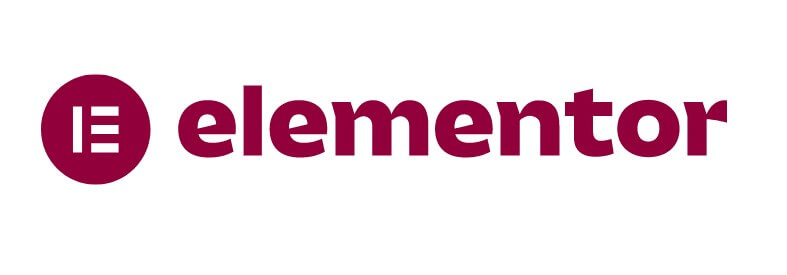Introduction
In this article, we will share our top 7 picks for the Best Website Builders for WordPress so that you can find a builder that is suitable for you and create the WordPress site of your dreams. You can find out which are our top 7 picks via our comparison chart below and keep reading if you want to find out what each website builder has to offer.
Check Out Our Top 7 Best WordPress Website Builders:
- Elementor – Best free version
How Do We Test and Rank?
It is hard to choose between the numerous website builders for WordPress that are available on the market. That is why we have developed our own ranking system. With its help, we can rank all the website builders in the most professional way.
Our ranking system is based on several factors that are among the most important to consider when choosing a WordPress website builder. We assign specific percentages to each factor based on how important they are and rank accordingly.
- Ease of use (25%): overall simplicity and ease of the set-up process, ease of navigating through the dashboard; complexity of the Control Panel, the slope of the learning curve.
- Customer Support (15%): what kind of help the builder offers (24/7 support through live chat, email, phone), response time, technical knowledge of the staff, problem-solving abilities of the staff.
- Plug-ins (20%): ability to use different plug-ins, how many plug-ins can users utilize, the usefulness of the available plug-ins for WordPress sites.
- Built-in Features (30%): the amount of built-in features a builder offers, quality and efficiency of the features, does the builder offer enough built-in features for building a WordPress site.
- Price (10%): do the plans offer good value for the money, is there a free plan available, flexibility in price and number of plans available.
Why Should You Use WordPress Page Builders?
The answer to the question mentioned above is pretty straightforward. Using WordPress website builders will allow you to create a complex website even if you do not have any experience with coding. So, website builders enable everyone to create their website. You do not need to be a developer or involved in the tech business to use website builders. However, using WordPress website builders offers more benefits, like:
- Faster creation process – Website builders usually offer drag-and-drop features that speed up the creation process significantly and allow users to have a lot of built-in options and features on their sites.
- Opportunity to create reusable templates – Users can create website templates with WordPress website builders. Once you create a template, you can reuse it as much as you like with the help of the above-mentioned drag-and-drop features.
- Faster editing – If there comes a time when a customer of yours requests a change of some kind, you can implement the change a lot faster with WordPress website builders than by coding the change by hand all by yourself.
- A wide array of features – Creating complex features by hand is very time-consuming, even for programming experts. On the other hand, website builders offer many features and options that are available to you with just a few clicks.
So, apart from the fact that everyone, even those who do not have any tech experience or tech background, can use WordPress website builders to create their website, there are many more benefits that you can reap from website builders. Most importantly, website builders will save you time and have your website up and running in no time.
The Top 7 Best WordPress Website Builders
- Overall Score: 4.7
- Ease-of-use: 4.4
- Customer Support: 4.8
- Plug-ins: 4.7
- Built-in Features: 5.0
- Price: 4.8
Elementor is another famous website builder for WordPress. The company serves tech professionals, including developers, marketers, and designers, and states that it creates a new website every ten seconds.
Elementor’s website builder comes in two versions – free and premium. It has more than nine million active installs and is used by people from more than 180 countries. Elementor’s slick designs and easy-to-use tools have helped millions of creators and businesses establish their online presence and build the WordPress site they need and want.
Also, Elementor comes with many pre-made templates that you can insert into your website if you want.
Pros:
- The free version comes with a wide choice of templates
- A vast community that can provide advice and support
- More than 40 widgets are included for free
- Powerful built-in editing tools
Cons:
- A little slower than its competitors
- It can be a little complex for beginners
Elementor is best known for its theme builder, which enables users to customize every nook and cranny on their website. With the theme builder, users can edit their site’s header, footer, product pages, blog post appearance, and every other aspect of their website.
| Plan | Essential | Expert | Studio | Agency |
| Price | US $49/month | US $199/month | US $499/month | US $999/month |
| Number of Products | Unknown | Unknown | Unknown | Unknown |
| Free Trials | No | No | No | No |
| Additional Feature |
|
|
|
|
Elementor’s Unique Features:
Free plan
The first and arguably most important feature you should know about is Elementor’s free plan. With Elementor free, you will get a plethora of excellent features, including:
- Drag-and-drop live editor;
- Responsive design;
- Live editing;
- 50 basic widgets;
- Five website kits;
- 30 designer-made templates;
- Global fonts + colors;
- Site settings;
- Mark widgets as favorites;
- Drag from the desktop.
Elementor’s free plan is ideal for beginners who want to launch their website and see what they like and what they don’t like. It also comes with the ability to preview your site on both desktop and mobile.
Add-ons
Elementor offers a lot of add-ons that can be very useful for your website. The add-ons include video, text editor, button and image boxes, headings, alert boxes, escalating process bar, and an accordion content display.
Features
In addition to the drag-and-drop builder, Elementor offers many other useful tools. For instance, it has a builder that users can use to create advanced marketing pop ups. Also, users can tweak the appearance of their site to fit both desktop and mobile. And, you can use Elementor’s WooCommerce builder to create an online store. What’s more, you can add custom CSS and HTML code if you need to and boost your marketing with integrated landing page and form creation tools.
Elementor is a fantastic option if you want to test the waters and create your website for free. It can help you launch your online presence with its vast array of valuable tools and features. If you want to learn more about Elementor and its services, check out our expert review on Elementor, where we cover all of that and more.
10 Tips for Building Your First Website
Building your first website can be difficult and stressful, especially for those that do not know where to start. So, we have compiled a list of 10 tips that can help you with building your first website.
- Make your homepage attractive and informative – The first thing your homepage should do is communicate your core message or selling point. Keep the information as short as possible and focus on providing only the necessary information, so your users do not become bored and impatient while reading your message.
- Make your menus easy to use – the best thing you can do here is to have a max of five drop-down menus at the top of your homepage so that your users can easily navigate through them and find what they need faster.
- Pick a suitable domain name – when choosing your domain name, make sure you choose one that is easy to spell and pronounce. Also, it would be best to avoid slang and punctuation if possible.
- Use a safe web host – after choosing a suitable domain name, you need to choose the right web host for your website. Make sure that the web hosting provider you choose offers all the features you need and has suitable security measures in place.
- Make engaging content – as times go by, the attention span of most people decreases as well. One way to keep users interested is to produce engaging and fun content for your website.
- Make your website mobile-friendly – most people nowadays use their smartphones to browse the web. That is why you should make sure that your website is mobile-friendly and responsive for mobile devices.
- Choose keywords – keywords are an essential aspect of SEO. Including keywords on your website will give you a better chance of getting more Internet traffic.
- Use a well-established content management system – using a well-established content management system like WordPress will allow you to create, modify, and manage content for your website.
- Install web analytics – web analytics gives you information about the users who visit your website. Namely, they give you information about your users’ gender, age, device, location, and interests, which can further help you with your marketing strategy.
- Cultivate backlinks – cultivating backlinks will enable you to rank higher in Google’s search results, which will, in turn, allow more people to find you quickly and open your website.
WordPress vs. Website Builders: What’s the Difference?
Choosing whether to use WordPress or Website Builders mainly depends on your needs. So, what is the difference between the two?
WordPress is a content management system. It is flexible but can be more challenging to learn. On the other hand, website builders are easier to use but less flexible.
Almost all website builders have a visual drag-and-drop interface that allows users to move elements around their website easily. On the flip side, WordPress does not have a visual interface. So, the editor on WordPress is more difficult to get used to and use.
People with no tech background may have a hard time using WordPress as it can get a little overwhelming. Also, sometimes users will need to write some code for a theme or plugin to work. On the other hand, website builders are easier to use, and more often than not, users do not have to write any code while using them.
WordPress has a large number of WordPress plugins you can use. Website builders also have their plugins, but not as many as WordPress.
Almost every website builder includes hosting in its plans. WordPress has to be installed on a MySQL and PHP web host. Also, you might need to use an FTP client to upload WordPress.
Summary
There are plenty of website builders for WordPress available on the market. So, choosing between all of them can be a long process. But, if you don’t want to spend countless hours researching hundreds of website builders and trying to test them out, you can use the recommendations we provided in this article to guide your way and help you choose the most suitable builder for your needs.
With the help of our recommendation system and this article, you can rest assured that whichever builder you choose from our Top 7 Best WordPress Website Builders list will offer excellent services and reliability.















